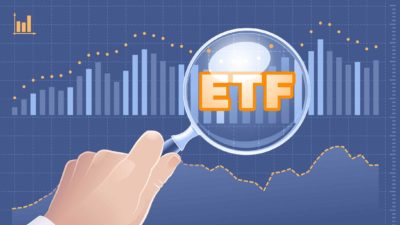The iShares S&P 500 ETF (ASX: IVV) has been a high-performing exchange-traded fund (ETF) for the past 15 years. The unit price has climbed approximately 580% in the last decade and a half, as shown in the chart below.
The IVV ETF is invested in a group of 500 of the largest and most profitable businesses listed in the United States.
Over the years, some companies have fallen out of the S&P 500 Index (SP: .INX), and other major operators have joined. For example, Meta Platforms (formerly known as Facebook) wasn't even a listed business 15 years ago.
After such a strong run by the US share market, is this a good time to invest in the ETF? I'm going to consider three aspects.
High-quality ETF
There's a reason the IVV ETF has performed so well — the companies in its portfolio are very high quality.
Think global powerhouses like Microsoft, Apple, Alphabet, Amazon, Nvidia, and Meta Platforms, whose products and services are used around the world. They all have extremely strong economic moats and still invest in their core products to grow further. Many are also now investing in artificial intelligence (AI), which could be the next big growth step for them.
The US tech giants I named make up more than a quarter of the IVV ETF portfolio.
When companies earn a high return on equity (ROE) and also reinvest a substantial amount of their profits back into the business, I think they have a great chance of success in generating good shareholder returns.
The ETF's portfolio also includes several other non-tech, high-quality names, such as Berkshire Hathaway¸ Broadcom, JPMorgan Chase, UnitedHealth, Visa, Proctor & Gamble, Mastercard, Costco, and Home Depot.
Strong diversification
No one can accurately predict which industries and stocks will perform well or poorly in the future, so diversification is one of the best ways to ensure investors don't face the risk of overconcentration. This means the overall portfolio is able to withstand a hit in one sector.
While IT does have a high weighting inside the IVV ETF portfolio (30.7% at 30 May 2024), I think that's a positive because of the profit margins and growth that technology businesses are capable of delivering.
Other industries with an allocation of more than 5% include financials (12.8%), healthcare (11.9%), consumer discretionary (9.9%), communication (9.3%), industrials (8.5%) and consumer staples (6%).
Valuation
It's clear that the IVV ETF is a quality proposition, but no investment is worth buying at any price. Overpaying can be a risk in itself, so we want to make sure we're buying at a reasonably good value.
According to Blackrock, iShares S&P 500 ETF has a price/earnings (P/E) ratio of 25. While that's quite high for an index fund, I don't think it's too crazy because of the quality and growth potential of its larger holdings. It can often make sense to buy a wonderful investment at a fair price.
It's not cheap, but at the current level, I think it's still worth a long-term buy because of the underlying companies' growth prospects in the years ahead. Profit growth usually drives share prices over time.









